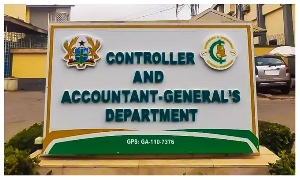Community Mining Scheme, a novel mining model by the government to curb illegal small-scale mining in the country will create 16,000 direct jobs nationwide.
The Scheme would stimulate wealth creation, promote community involvement and linkages with other sectors of the economy.
So far, the Ministry of Lands and Natural Resources had issued 55 mining licenses to some communities; this includes three licenses issued in Abosso in the Western Region, whilst Nsiana, Manso and Nkwanta in the Ashanti Region have been granted 22 licenses, Tinga in the Savannah has been granted with six licenses, Akoase in the Eastern Region with 17 licenses and Mempehia in the Ahafo Region with seven licenses.
Mr Kweku Asomah-Cheremeh, the sector Minister, announced this when he launched the Scheme in Nsiana in the Amansie West District of the Ashanti Region.
"I assure you that my Ministry is committed to working with all stakeholders in the mining industry to ensure that minerals in the country are efficiently exploited," the Minister said.
The Community Mining Scheme is a novel mining model introduced by the Akufo-Addo's government to address the underlying causes of illegal mining, otherwise known as 'galamsey' nationwide.
It's a sure way of involving indigenes in mining ventures lawfully within their localities so that they could also benefit from their natural resource endowment and ensure sustainable livelihoods and to prevent the wanton destruction of the environment.
It's an adaptation of mining provided for under sections 81-99 of the Minerals and Mining Act, 2006(Act703).
Mr Asomah-Cheremeh said mining, especially gold, played a significant role in the economy of the nation and small-scale mining, in particular, is a major contributor in that regard.
He said, for instance, the small-scale mining sub-sector contributed 36 per cent of the total gold produced in Ghana.
As provided for within mining law, the scheme is reserved for only Ghanaians but with emphasis on host mining communities.
To ensure a successful implementation of the Scheme, three key strategies had been outlined; such as formation of a Community Mining Oversight Committees, adoption of the small-scale Miners Code of Practice and provision of support services to the community miners.
General News of Friday, 5 June 2020
Source: GNA













